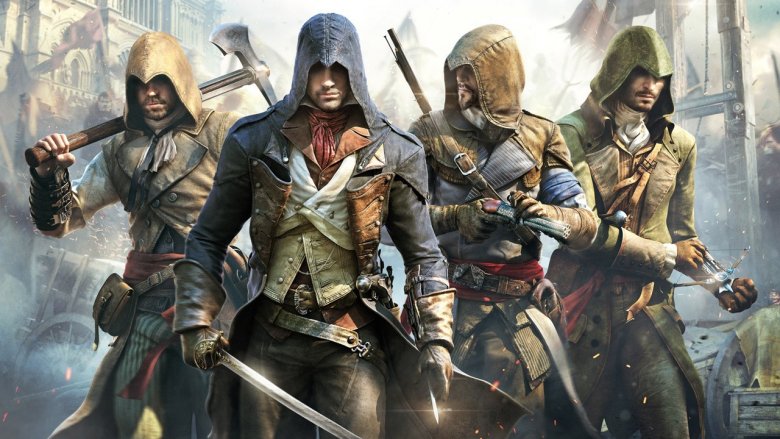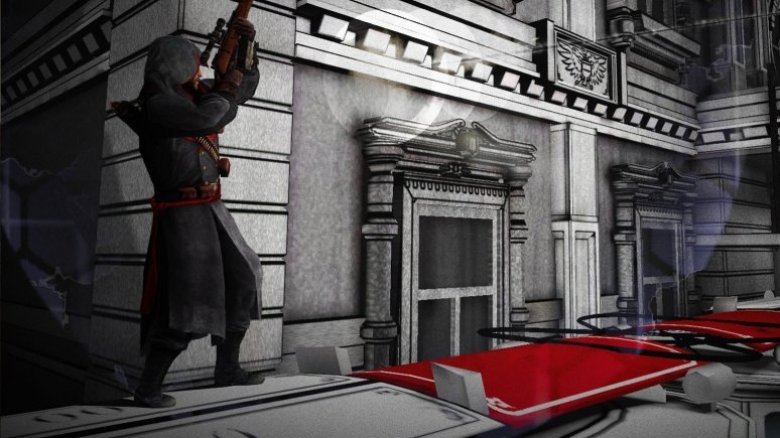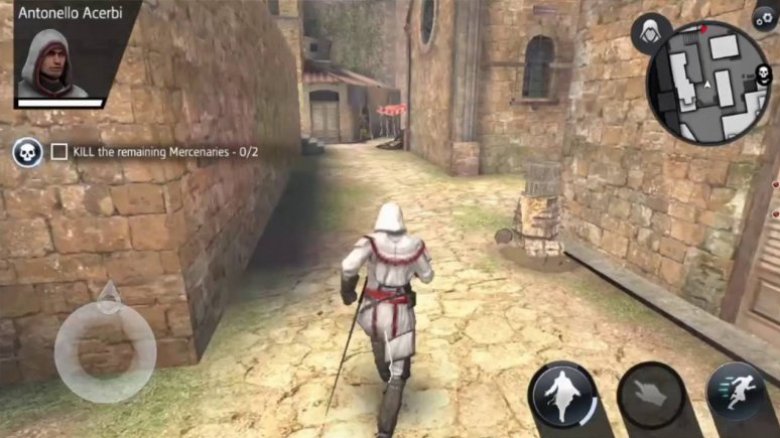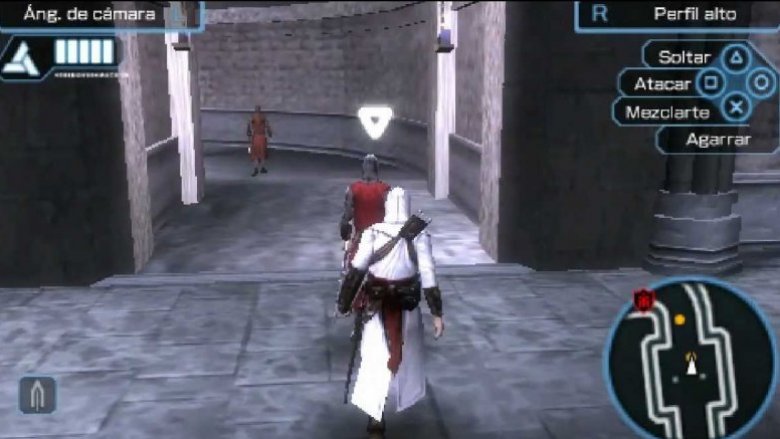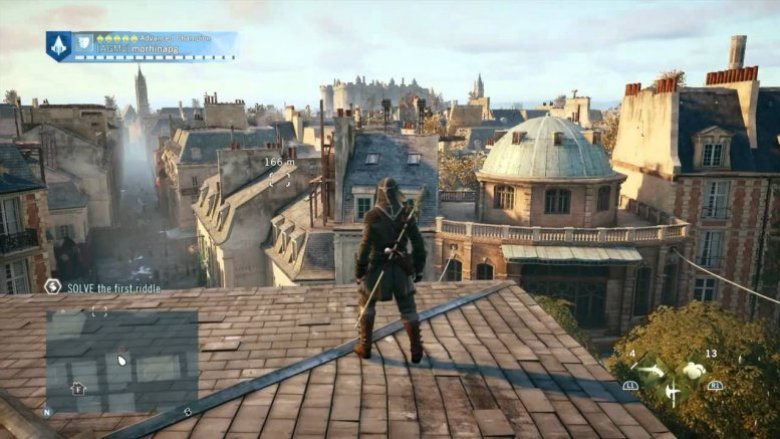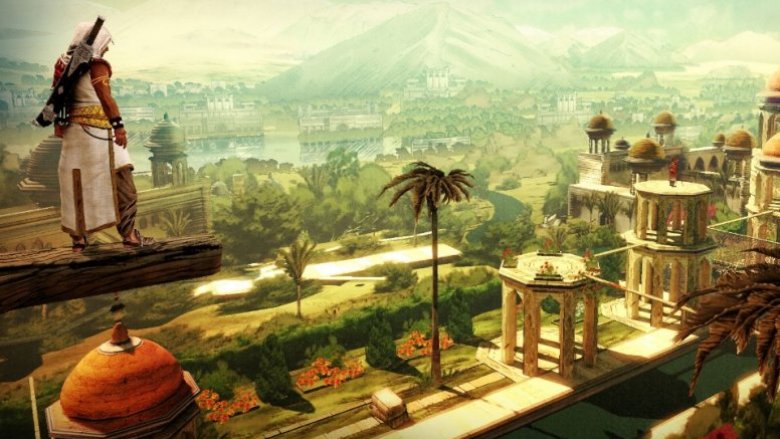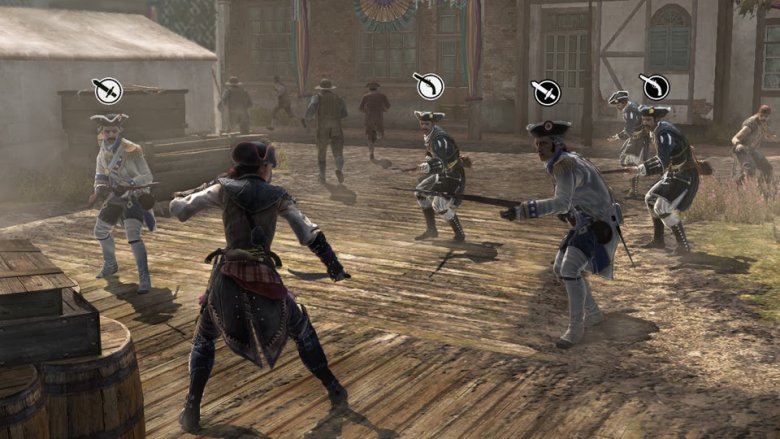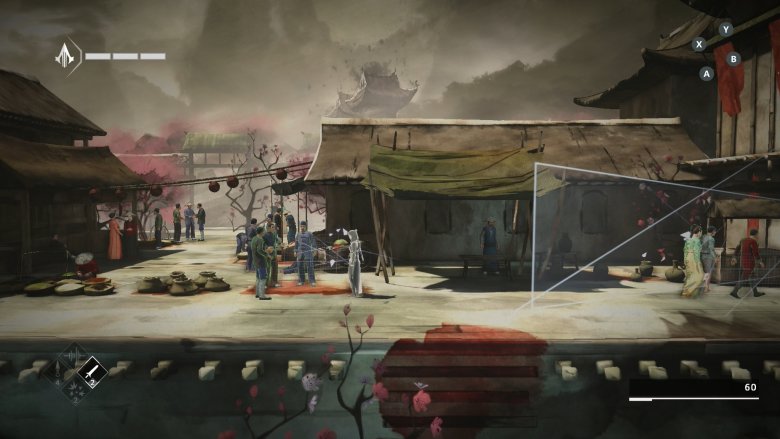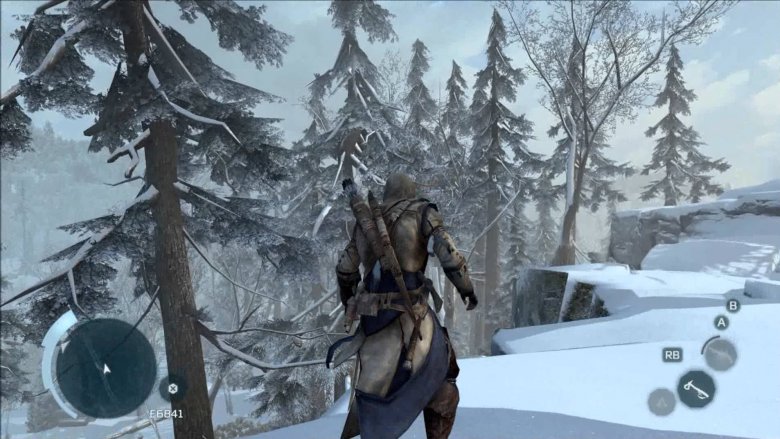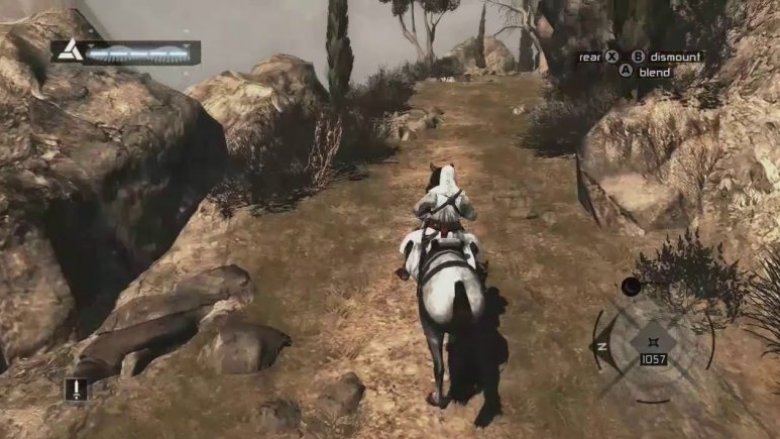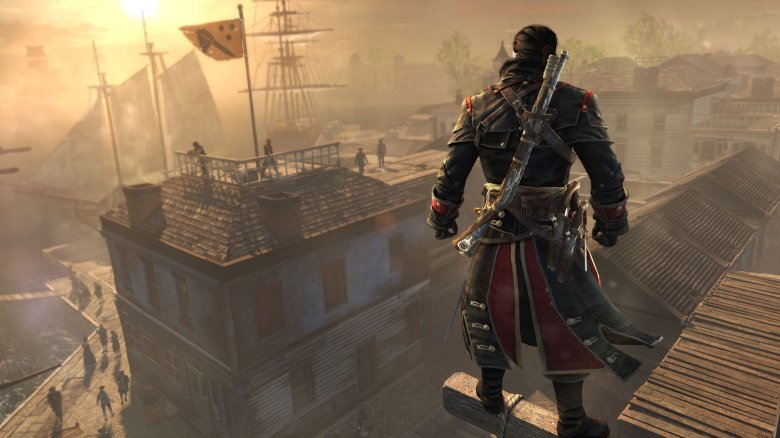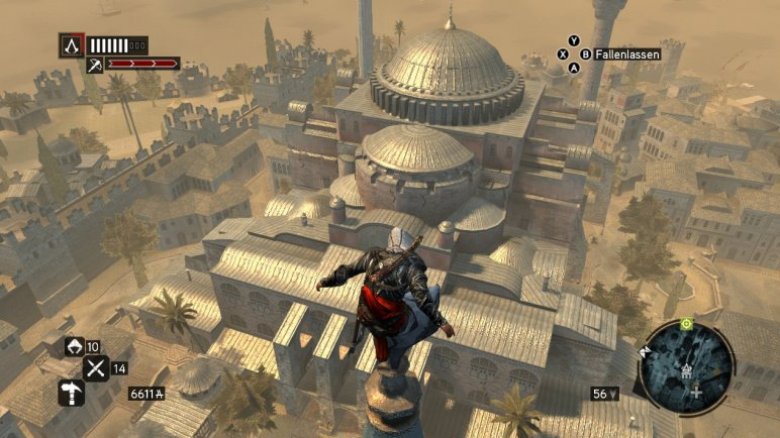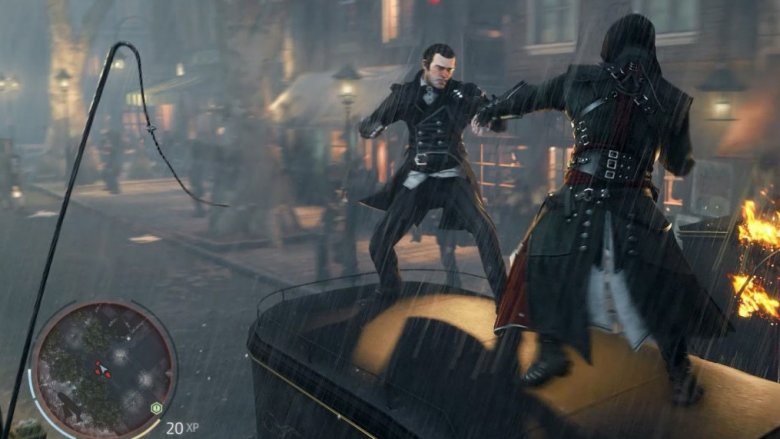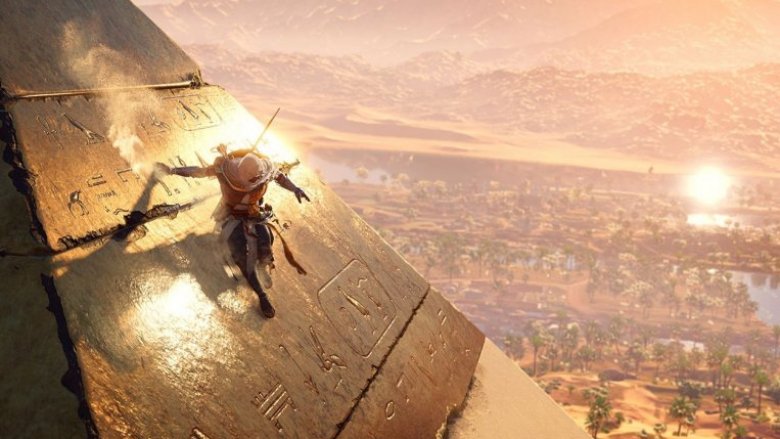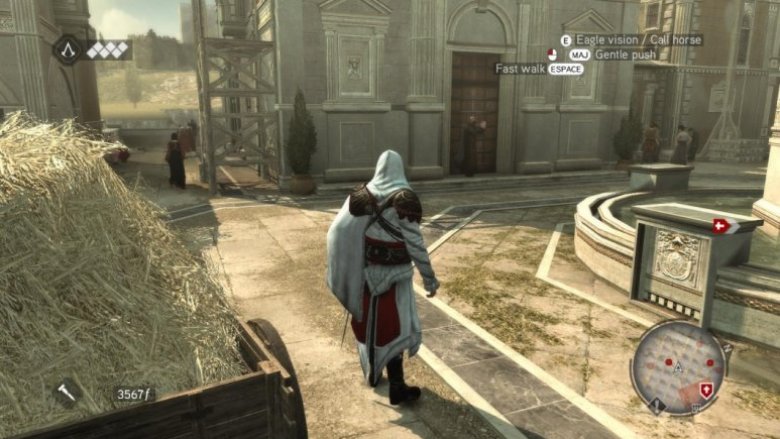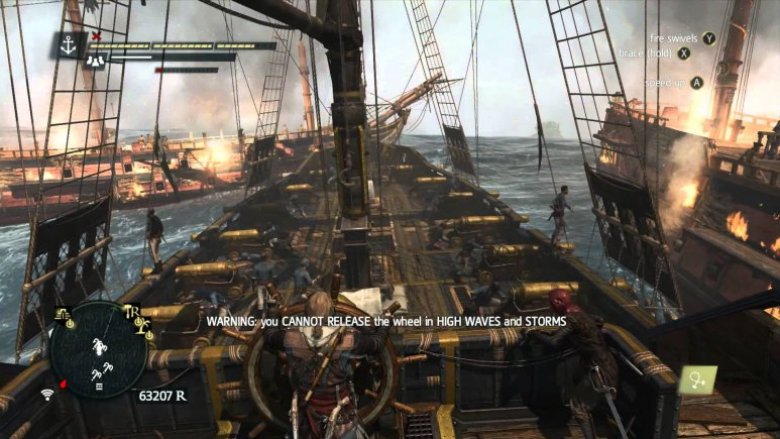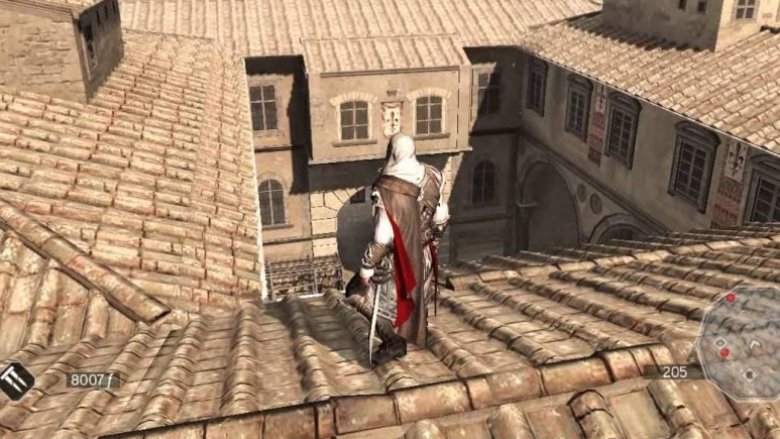Every Assassin's Creed Game Ranked Worst To Best
The Assassin's Creed franchise is a long-running and storied one for publisher Ubisoft, who've put out plenty of sneaking, stabbing, and parkouring assassin adventures over the past decade. As with any series, there's the good, the bad, and the ugly—which is why we're here to rank them from worst to best, including all main console, handheld, and mobile releases.
A few titles have been omitted from this list, most of which are companion apps built for babysitting their respective console counterparts, with the other smattering being so light on actual gameplay that they're not comparable to the full-fledged games on this list. Also, Assassin's Creed 4: Freedom Cry has been omitted as it is a standalone expansion pack for Assassin's Creed 4: Black Flag, rather than its own game.
Beyond those minor exemptions, we've got every single major inclusion to the franchise ranked below. Will your favorite be number one? Scroll down to find out.
Assassin's Creed Chronicles: Russia
The Bolshevik Revolution and the legend of the Grand Duchess Anastasia is a perfect fit for the history-bending Assassin's Creed franchise, but unfortunately, Ubisoft decided to waste the story and setting on a mediocre side-scrolling platformer.
It's not that Assassin's Creed doesn't work in 2D — the other Chronicles games play just fine. It's that Assassin's Creed Chronicles: Russia is filled with stealth sections that rely on trial and error. And that's not all: there's the finicky melee combat, which has been a problem in all three Chronicles spin-offs. And there's also the blocky and flat art style, which fits the theme but fails to dazzle, and there's also the irritating timed missions that leave absolutely no room for error. Ultimately, Assassin's Creed Chronicles: Russia isn't the worst game ever made, but it's chock full of wasted potential, and that makes it the most frustrating Assassin's Creed installment to date.
Assassin's Creed Identity
Assassin's Creed's big hook isn't the stealth-based missions or the convoluted sci-fi backstory. It's how the franchise drops you into giant, sprawling cities plucked from ancient history and then lets you do more or less whatever you want.
That's where Assassin's Creed Identity falls flat. Yes, the mobile-exclusive Assassin's Creed Identity gives you a pocket-sized version of Renaissance Italy to visit, but unlike the franchise's console installments there's no open world to explore, and the game's missions are incredibly linear. You'll play how Identity wants you to play, or you won't play at all. Tack on an imprecise camera system that makes stealth difficult, a grindy progression system, fiddly controls, and a setting that we've already seen too many times, and Assassin's Creed Identity collapses under the weight of its own flaws. Are there good ideas here? Sure. That doesn't make Assassin's Creed Identity much worth playing.
Assassin's Creed: Altair's Chronicles
The Nintendo DS isn't a powerhouse, especially by today's standards, and developer GameLoft didn't even try to replicate the console experience on the small screen(s). That's probably for the best. Instead of a history-driven open-world romp, Assassin's Creed: Altair's Chronicles plays up the Assassin's Creed's parkour-inspired travel system to create a bite-sized platformer that's over almost as soon as it begins.
Sloppy combat and shallow (but amusing) touch-screen minigames aside, Assassin's Creed: Altair's Chronicles is diverting enough. It just doesn't feel like an Assassin's Creed game. Beef up the content and give Altair's Chronicles an original title — or something more appropriate, like Prince of Persia — and we'd have no complaints. Altair's Chronicles is worth a couple of bucks if you can find it used. But, title aside, a true Assassin's Creed game it isn't.
Assassin's Creed II: Discovery
For whatever reason, Ezio Auditore moves with the speed of Sonic the Hedgehog in this game, and while it kind of, sort of works as a two-dimensional platformer for that very reason, it's when the developers try to shoehorn in the series' trademark stealth that things start to falter. Stealth and speed rarely work when put together, especially in such watered-down, lackluster forms present here due to the Nintendo DS's hardware limitations. That, coupled with pretty gross presentation (again, a limitation of the system) make this an old entry in the series that no one will miss.
Assassin's Creed Bloodlines
Give Ubisoft Montreal and Griptonite Games credit for trying. Instead of tacking the Assassin's Creed label onto an unrelated game, Assassin's Creed Bloodlines tries to recreate the full Assassin's Creed experience on the PlayStation Portable, and it looks fantastic. Visually, Bloodlines is one of the best PSP games ever made. Technically, it's quite an achievement.
The rest of the game doesn't quite live up to those standards. While the main Assassin's Creed games favor stealth over face-to-face combat, Bloodlines players can get away with running around and bludgeoning everyone in sight. Unfortunately, Bloodlines' shallow combat gets old pretty quick. So does the rest of it. After a few minutes, you'll see everything that Assassin's Creed Bloodlines has to offer. From there, you simply accept a mission, stab your way to victory, rinse, and repeat until Bloodlines comes to a merciful end.
Assassin's Creed Unity
Assassin's Creed Unity should've been a high point for the series. It was the first Assassin's Creed game on current-generation consoles, and French Revolution-era Paris is both a fascinating setting and has the potential for some truly stunning landscapes. A brand new combat system, improved free-running controls, and co-op multiplayer seemed poised to reinvent the franchise for the better.
It would've worked, too...if the game had worked. Assassin's Creed Unity was so buggy and broken at launch that Ubisoft apologized, gave disgruntled customers free games, and decided to end Assassin Creed's time as a yearly franchise. Ubisoft fixed many of Unity's issues over time, but like they say, you only get one opportunity to make a first impression. At the end of the day, Unity blew it.
Assassin's Creed Chronicles: India
How much you'll enjoy Assassin's Creed Chronicles: India depends on two things: whether the art style, which blends bright colors with Sikh designs, appeals to you, and how much freedom you want from your Assassin's Creed. If you're the type of player who likes puzzles with a single, finite answer, Assassin's Creed Chronicles: India should be right up your alley. If you prefer to experiment and come up with solutions on the fly, you'll probably find Assassin's Creed Chronicles: India restrictive and frustrating.
Assassin's Creed Chronicles: India is filled with missions that end if you make one mistake and enemies that'll defeat you with a single blow. That can be a fun challenge. It can also make you want to throw your controller through a window, and your experience with the game will rely on how much patience you have for tackling the same challenges again and again until you get it just right.
Assassin's Creed: Liberation
In what remains the most ambitious and fully-functional portable attempt at capturing the series' magic to this day, Assassin's Creed: Liberation is a handheld marvel. Originally released for the under-loved and criminally undersold PS Vita, Liberation is technologically sound, plays well, and looks great.
The issue, however, lies in the fact that the main character, Aveline, is just not that interesting, nor is the gameplay itself. The mission structure is bland, the maps are boring to navigate, and it feels like the development team spent too much time trying to capture the scope of the main series rather than actually fine-tuning the smaller parts therein.
Assassin's Creed Chronicles: China
For what it is, the Chronicles series is an interesting attempt at a morsel-sized Assassin's Creed experience, and the first entry in the saga illustrates this best. Departing from typical AC stylistic tropes and instead infusing a cool female protagonist into a world of hand-brushed, inky graphics and awesome 2.5 gameplay, China remains the best installment in the Chronicles line. This is thanks to its stellar presentation and sharp level design, the likes of which facilitates stealth better than either India or Russia and makes China a generally more fun experience than any of the series' other small-scale releases, Liberation included.
Assassin's Creed III
Beyond the generally fun multiplayer and overall abundance of content, this game has one big thing going for it that no other AC game has yet to achieve: an absolutely outstanding story with a protagonist who really grows. Even better, the game starts with a massive, three-hour bait and switch that doesn't reveal the true protagonist until after the end of the jaw-dropping prologue.
From there, it's an epic story that comments on the nature of race, trust, ideological hypocrisy, and so many other mature themes that you can't help but identify completely with the game's hero, Connor Kenway, by the time it's over. It's a nuanced narrative with a subtle but real emotional punch at the end (if you completely ignore the Desmond portions of the story), and that's what really sets AC3 apart from its brethren. Well, that and the introduction of the series' awesome naval combat.
Assassin's Creed
Over the years, Assassin's Creed has been both very good and very bad, but we wouldn't have any of it if the original game hadn't established such a strong foundation for things to come. Assassin's Creed is far from perfect — it can get awfully repetitive, the controls are slippery, and its hero, Altaïr, is a major snooze. But almost everything that you love about Assassin's Creed is here, at least in a basic form.
Exploring Crusade-era Jerusalem, Acre, and Damascus is a blast, the parkour-inspired travel is exhilarating and thrilling, and the Templar vs. Assassin conflict launches a whole franchise's worth of mysteries. Sure, the combat is dull and the artificial intelligence is as dumb as rocks, but Assassin's Creed wouldn't have become one of the biggest franchises in gaming without a solid, if flawed, start. Thankfully, it got one.
Assassin's Creed Rogue
Even if Assassin's Creed Rogue is a budget-title that's deliberately lifted most of its assets and models from Assassin's Creed 3, that doesn't change the fact that it's a well-made product featuring good level design, fun naval sections, and a generally well-put together experience that encourages exploration and improvisation. Furthermore, it's one of the only games in the series that lets us see things from a Templar's perspective, hence the Rogue subtitle. In short, the game's got a fun narrative and enjoyable gameplay to match. What more can one ask for?
Assassin's Creed Revelations
In many ways, Assassin's Creed Revelations is a better game than its direct predecessors, Assassin's Creed II and Assassin's Creed Brotherhood. In its second outing, the Brotherhood system, which lets lead assassin Ezio recruit soldiers to his cause, is streamlined and easier to use. The expanded multiplayer offerings have a much longer shelf life. Combat flows better, and the hookblade makes travelling through Rome easier than ever.
At the same time, Assassin's Creed Revelations doesn't do anything new. It's about refinement, not innovation. That's perfectly fine — Revelations is still a great game — but Ezio and his world start to feel a little stale by the end of his third outing. Assassin's Creed Revelations does almost everything right, but by the time the credits roll and Ezio's story ends, we're ready to move on to new, more exciting things.
Assassin's Creed Syndicate
While Syndicate is definitely not reinventing the Assassin's Creed wheel, it's a highly polished game with a well-designed open world, awesome new grappling hook mechanic, and fun pair of protagonists. Really, it's the pair dynamic that makes this game so interesting—not only because you've got a story revolving around two unique characters, but also because you can play as both, leading to diverse and exciting gameplay situations. Plus, this is the first AC game with trains! It's awesome: old-fashioned Victorian steam engines roll through the city and lead to some very exciting encounters that really spice up roaming about the open world.
Assassin's Creed Origins
Assassin's Creed Origins is what Assassin's Creed Unity should've been: a current-generation update of the series' tired and true formula. After all, by the time Origins rolled around, the series was a full decade old. It's time to shake things up, ideally without losing everything that made Assassin's Creed special in the first place.
In this case, Ubisoft delivered. By going further into the past than any other Assassin's Creed game, the company restored the franchise's sense of wonder, which faltered as the series moved closer and closer to the present. For once, the story will actually keep you guessing. Its combat is completely overhauled (thank goodness), the complex and satisfying loot and mission systems make exploration more rewarding than ever, and there's not a single escort mission in sight. Origins isn't perfect — few games are — but if Ubisoft can keep making games this good, then Assassin's Creed has a very, very bright future ahead.
Assassin's Creed Brotherhood
How do you follow up the best reviewed entry in the Assassin's Creed franchise? By creating a game that's almost as good. Assassin's Creed Brotherhood continued Ezio Auditore's story by moving the action to Rome, where players could sneak around famous landmarks like the Colosseum and the Vatican. The developers also added multiplayer to the series for the very first time, and introduced the titular Brotherhood system, which lets Ezio recruit his own army of assassins. Assassin's Creed Brotherhood has a lot to do — too much, maybe, judging by how messy the map can get — but most of it's optional. If you want to ignore all the extras and follow the main plot, you can, but warned: it's a doozy.
Assassin's Creed IV: Black Flag
How good is Assassin's Creed IV: Black Flag's sailing system? It's so good that not only did Black Flag get a direct sequel, the Templar-centric Assassin's Creed Rogue, but Ubisoft spun off Black Flag's naval combat into its own game, Skull & Bones. That's pretty damn good.
You can knock Black Flag for being more of a pirate simulator than an assassin adventure, and you necessarily wouldn't be wrong. When cruising the open seas is this much fun, who cares? Assassin's Creed IV gives players more freedom than any other Assassin's Creed title, and the game's better for it. If you're tired of the series' normal missions, it's easy to waste hours making your own fun by looting ships and hunting for treasure. Meanwhile, the predefined missions provide all the traditional Assassin's Creed action you need, including some of the series' best stealth levels and a particularly compelling string of assassination-focused side quests.
Assassin's Creed II
Assassin's Creed set us up, and Assassin's Creed II knocked us down. This is where the series really started. While the original Assassin's Creed was a solid proof of concept, Assassin's Creed II shows off the franchise's true potential.
In Assassin's Creed II, climbing walls and vaulting between buildings is fun, not tedious like in the original. The story is fast-paced, striking the perfect balance between historical drama and the sci-fi goofiness that'd come to define the series — remember, this is the game that introduces Leonardo Da Vinci as a Q-like inventor, and ends with a battle against the Pope himself. It stars the best protagonist in Assassin's Creed's history. The controls are better, the combat is deeper, the map isn't too cluttered, and the stealth elements take full advantage of the game's urban setting.
Later games might've tweaked, refined, and reinvented some of Assassin Creed II's more finicky systems for the better, but Assassin's Creed II is the reason why the series is still around today. Assassin's Creed II is one of the few real game-changers in video game history, and even years later, it's going to be awfully hard to top.

